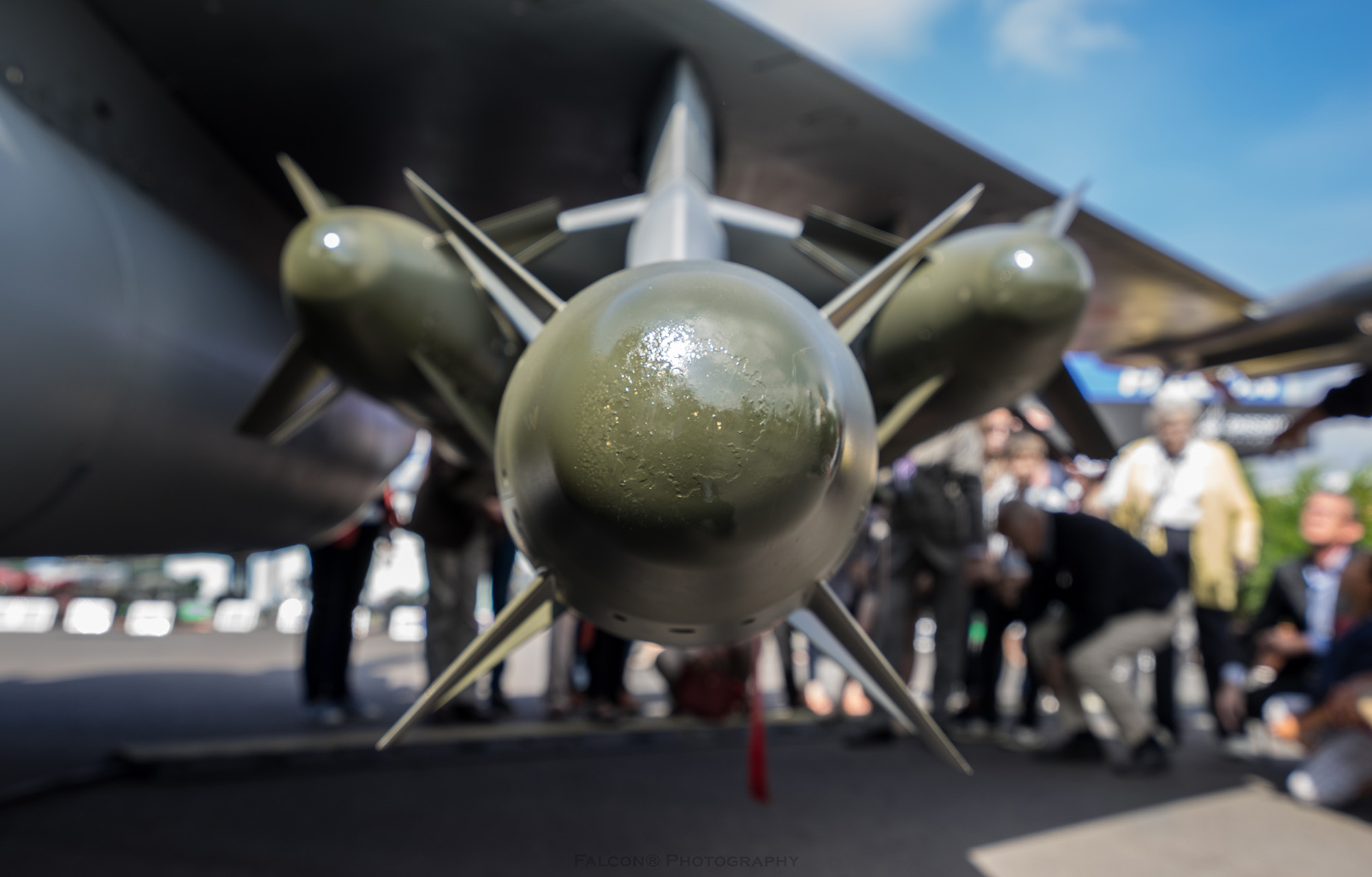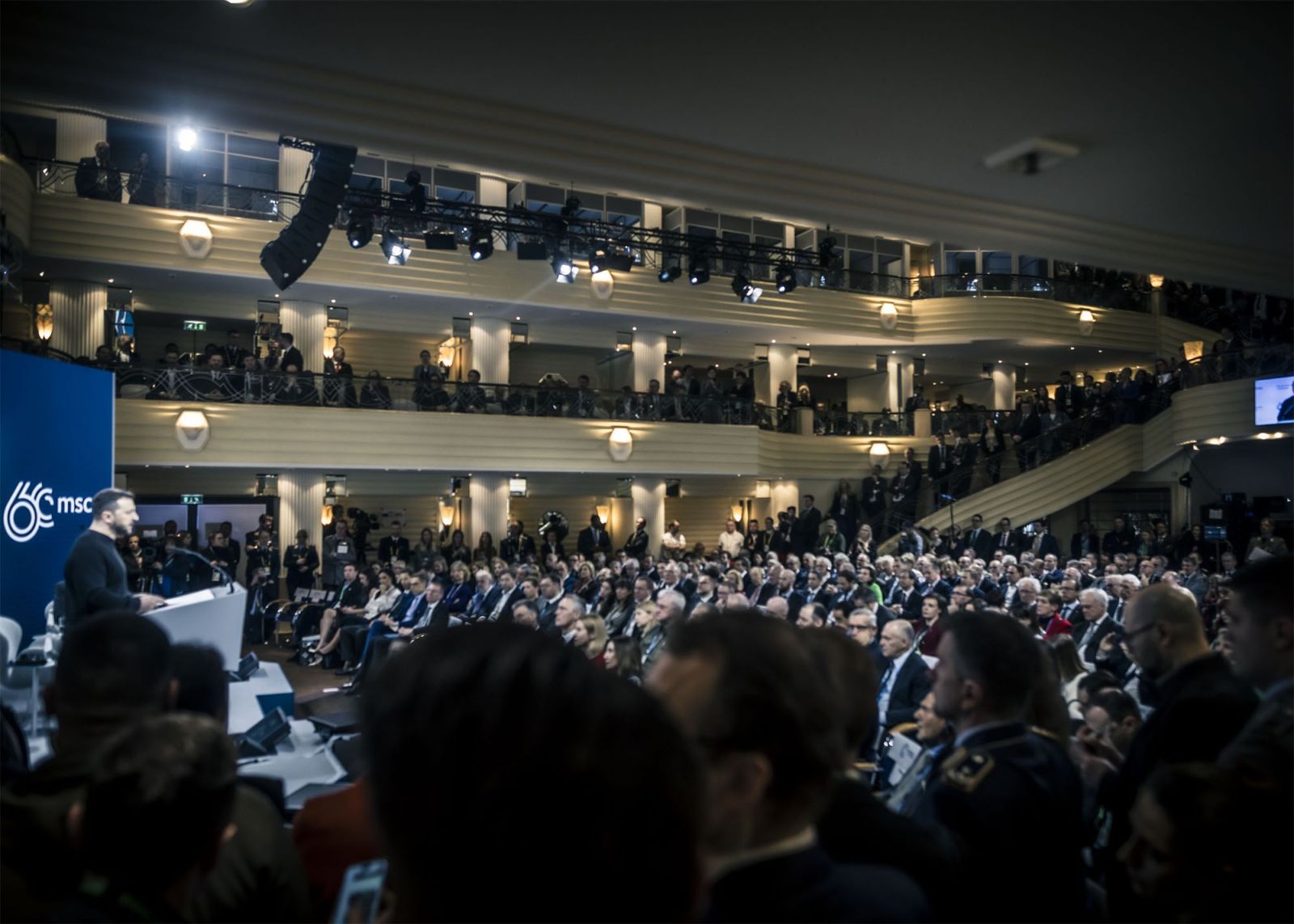
While our politicians are asleep with the pre-campaign of the regional elections, half of the people dreamed of the football or football finals and the other half looks frightened of Palestine, while the main media collide with garbage the venous blood of corruption in Madrid, while everything happens, the risk of a farce has passed through Europe these days. And it's called war.
History first appears as a tragedy and then dressed in farce, Marx warned. The Community authorities have hit the whistle and told the citizens that we must be prepared for war. The words of the President of the European Commission, Ursula von der Leyen, have had the greatest media impact: “The risk of war may not be immediate, but it is not impossible, we have to be prepared,” he said in Strasbourg, at the home of all voters with European citizenship.
For many, the far-right force in the European Parliament in the June elections is directly related to the militarist discourse growing in the political establishment and the elections to be held in the US in the autumn, as a few weeks ago Donald Trump said that if they invade the White House President, the dopamine of the American uncle has ended for the war in Ukraine.
Deterrence, that is the medicine that Russia must put at risk of a NATO country being attacked. But that has a price and not a small price.
Instead of leaving the butt, Chancellor Olaf Scholz and so many others have come out in Berlin saying that we have to produce weapons on a massive scale. Emmanuel Macron tells us from Paris: we should send soldiers to Ukraine. And the camera Vladimir Putin responded to the return of Moscow: aizak txikito, I have many nuclear bombs… Brussels, for its part, wants to set in motion a mechanism for selling arms to European industry.
La Real, who is seriously following this escalation, has interviewed former Spanish foreign minister Arancha González Laya, currently dean of the Paris School of Foreign Affairs. Whether or not Trump wins, "EE.UU. It will go back to the Atlantic and our security must be taken over by us," said the Donostia, while claiming that Europe must increase its arms production capacity. "Everything we thought wasn't going to happen in the past has happened. Brexit, Trump, Russian invasion beyond Ukraine, Israel's return to Palestine..." Deterrence, that is the medicine that Russia must put at risk of a NATO country being attacked.
Be a drug like a policy, that has a price and not a small price. On the pages of the same newspaper we can read an article written by Manel Pérez, attached to the director of the Community: "Who will pay the bill for rearmament in Europe?" (Who pays the bill for rearmament in Europe?) has given the name.

The journalist follows Von der Leyen’s lead in the Financial Times: “We have to spend more, spend better, spend more.” The problem, however, is that the EU will soon be implementing fiscal measures to return to austerity, reducing the deficit and debt. How will that be married by spending more, better, more European... on armaments? Pérez has found the explanation in a graph publicly presented in February at the Munich Security Conference.
What do you prefer, weapons or butter?
It is a statistic performed by economist Christoph Trebesch of the Kiel Institute that compares the evolution of the military and social spending of the powerful countries that make up the G7. In the English Jargon follows the liberal macroeconomic model Guns versus butter, which indicates that as what is spent on weapons increases, the investment in public services decreases, which is compared with butter in contempt, and vice versa.
The concept was first used in the United States in the early 20th century, and since then we have heard from eleven authorities. Wikipedia has listed us a few. Joseph Goebbels, Nazi propaganda minister: "We cannot shoot with butter, but with weapons." British Prime Minister Margaret Thatcher: "The Soviets prioritized weapons over butter, but we prioritized everything over weapons."

The Trebesch graph shows that when there are conflicts, as in the two World Wars, the military spending curve goes up to the sky, while social spending collapses. “Sometimes the humble palms go down in the shade…”, Txirrita said, and that phrase could serve the same for this. But since World War II military spending “has gradually decreased and social spending has increased to five times more,” Trebesch said in Munich. Moreover, the economist said that although in Germany the “geopolitical risk” is greater than ever, the trend remains the same and there is a “disconnect”.
This kind of analysis is not a memeloquence, at least when it is said that it has as diners Evika Silina, the prime minister of Latvia, or Norbet Rött, of Bundestage, of Germany. The Munich Conference has become the most important international security meeting since its inception in 1963 and Trebesch listened to senior officials. The whole day is hanging on Youtube.
Tax measures to return to austerity will soon be launched by the EU. How do you get married by spending more, better, more European... on armaments?
“All countries want people who have worked throughout their lives to receive a pension, but the first objectives of a state are to ensure their existence, security and sovereignty.” Thus, the Prime Minister explained that defence spending has increased since Russia took over the crime in 2014. Latvia will spend 2.4 per cent of gross domestic product this year on military spending and has a plan to increase that amount to 3 per cent by 2027. Silina states that 18 NATO countries have already committed to spending 2% of their GDP on armory.
At the same table was Harvard historian Niall Ferguson, well known in the hegemonic media for his good vision of British imperialism. Almost ridiculing everyone in the room, he questioned the “illusion of the peace dividend” we have had so far in Europe: “Germany should spend 4.5% of GDP on weapons!”, could be heard in a simple hysterical video.

Satisfaction of the shareholders of the Ombudsman
The arms race is something that is already being noticed. In 2022, the world spent EUR 2,055 billion on arms (2.2% of GDP), more than ever since the Cold War, according to the Stockholm International Peace Research Institute.
In the January issue of Le Monde Diplomatique, Philippe Leymariak, an 80-year-old journalist expert on defensive issues and with a blog, asks who benefits the wars and has a long list of the biggest arms producers, starting with the US giant Lockheed Martin, East China defender Grumman, and his upcoming Leaviation tension.
.jpg)
But the only way to spend on arms and not cut into social services is to self-finance debt, which they can only do EE.UU, with the dollar: “With the rearmament of Europe the redefinition of priorities will be adapted,” says Manel Pérez in his article of La Vida. It considers that, in addition to the folders of the green agenda that are already being emptied, through the peasant protests, there are other folders that can be used, such as pensions, health care or immigration.
The Manu Robles-Arangiz Foundation has carried out a study entitled Debt, a tool for dominance, presented by ELA member Xabi Zabala at the recent seminar on the EU’s green and digital agenda in Bilbao. “We are at a time when the voices of militarization can be heard anywhere,” says Zabala. We must be aware that we are in the context of geopolitical competition. We are told that military spending must be increased and that we cannot spend more than 2.6%. To make this arithmetic possible, the only place that can be reduced is social spending.” In this scenario, the study reveals that austerity plans are a “war machine.”
“Hate and war, the only things we got today,” interpreted at 70 by the legendary Joe Strummer of The Clash. In other words, hatred and war were the only things they had then, and also, because the higher classes used hatred and war to control finance and society, to the point of opposing the most marginalized and the junkies. Hate, hate, hate… Today we can sing the same replica at punk rate, with debt, drones, hunger and artificial intelligence, because iguala is a dog of domination between boys and girls.
Bandera amerikanoz inguratuta, muga-zergen oldarraldi berria iragarri zion munduari Donald Trumpek apirilaren 2an. Geroztik hamaika astindu jasan dituzte burtsek eta nazioarteko merkataritzak. Baina hau ez da zoro baten boxeorako ringa bakarrik: AEBetako politikan hamarkada... [+]
Washington, D.C., June 17, 1930. The U.S. Congress passed the Tariff Act. It is also known as the Smoot-Hawley Act because it was promoted by Senator Reed Smoot and Representative Willis Hawley.
The law raised import tax limits for about 900 products by 40% to 60% in order to... [+]
At the beginning of the year, the Zedarria group publicly supported the "opening of the debate" on the "defense" industry (as well as the nuclear industry), to which the Basque Government has immediately joined. First, through Mikel Torres, Vice President and Economic Counselor, who... [+]
Public education teachers have the need and the right to update and improve the work agreement that has not been renewed in fifteen years. For this, we should be immersed in a real negotiation, but the reality is deplorable. In a negotiation, the agreement of all parties must be... [+]
Ukrainaren ondoren Polonia?
Europar Batasunak Ukrainako gerra hauspotu du Kiev armaz hornituta, eta menia oraindik airean delarik, gerraren zikloan murgilduta dago bete-betean. Hori bai, bere diskurtsoa modulatzen ari da, eta gero eta gehiago hitz egiten du balizko su-etenaz... [+]
Economists love the charts that represent the behaviors of the markets, which are curves. I was struck by the analogy of author Cory Doctorow in the article “The future of Amazon coders is the present of Amazon warehouse workers” on the Pluralistic website. He researches the... [+]
Today’s Venice is built on an archipelago of 118 islands. These islands are connected by 455 bridges. The city is based on mud rather than Lura. Millions of trees in the area were cut down from the 9th century onwards to build piles and cement the city. Years have passed and... [+]